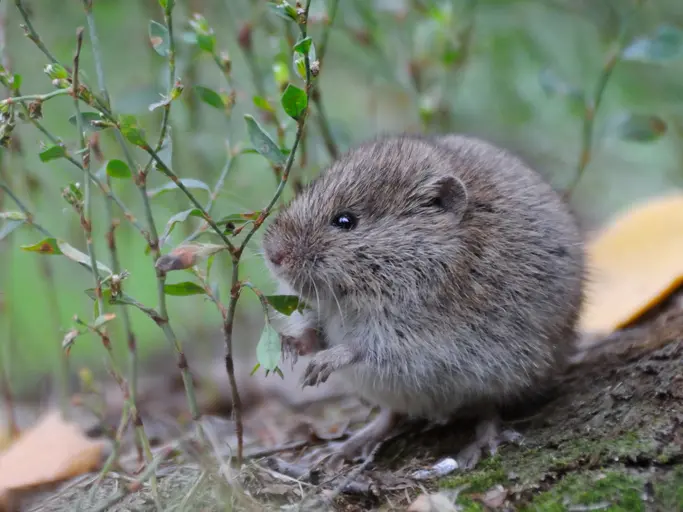A Few Facts About Voles You Might Not Know
Now you may be wondering, what is voles? To answer your question, they’re like beefy mice with smaller tails and snouts. They cause more problems in your yard than mice, while mice are more house pests than voles.

Voles Can Cause a Lot of Damage in a Short Amount of Time
Voles tend to create massive tunnel systems either underground, or through the grass. They will remain active all year long. Voles are well suited for the cold and need just as much, if not more food to battle cooler temperatures. They will cause the most damage in the winter.
Voles for the most part are herbivores and stick to plans, however there are a few species that do eat insects and other small creatures in a pinch. And you may be wondering, are voles nocturnal? Well, these pests tend to be for the most part, but as for what do voles eat, it becomes limited, they can become active in the day as well.
Since they like to eat roots and plants as their main food source, they can quickly do a lot of damage to your lawn, garden, and trees.
Vole reproduction cycles are extremely short – as little as 21 days, and they can have anywhere from 3 to 6 off spring per litter. The new voles are able to reproduce after around 3 to 5 weeks! This means a small vole issue could turn into a large one very fast.
Vole Prevention Tips
The biggest issue most people have with voles is that they can do significant damage to garden crops and fruit trees. They will eat almost any vegetation they can get their hands on and with how fast they breed, there can be plenty of mouths to feed.
Keeping voles out of your garden in the first place is your best bet to prevent any issues. You can do this by creating a barrier between your garden and the normal soil around it.
You can create a barrier in several ways, some of which are building a fence, putting hardware cloth in the ground, or creating a gravel barrier around the garden. Basically anything voles can’t easily tunnel through.
Since voles live and breed year round, they are still do damage even in the winter. This means even with them deep under the snow you could have dead trees come spring time. Clearing snow and fencing around trees can help, but be sure to put the fence as low in the ground as you can, without damaging roots and make sure that it comes above the snow level so the voles can’t eat the tree bark, which can kill the tree as well.
Remove the Vole Food Sources That You Can To Avoid Attracting Them to Your Yard
Voles eat seeds, roots, grasses, fruits, and veggies, so if you have any of these laying around in your yard be sure to clean them up. Giving voles a reason to be in your yard is asking for trouble. Even long grass is enough to attract them, so ensure the grass is cut short moving into cooler months and stays well-maintained during the warmer months.
If you have bird feeders, for example, the excess seeds that can end up all over your yard can attract voles. It is the same thing with fruit trees. Fruit that falls off of the trees can attract voles and other rodents, so keeping up with any old fruit on the ground is essential for keeping your yard vole free.
Protect Your Yard From Voles With Rove Pest Control Today
Have you noticed small tunnels or damaged plants in your yard? You might have a vole problem! Many people wonder, are voles nocturnal, and while they are active day and night, they can quickly destroy your lawn. At Rove Pest Control, we specialize in effective vole control to protect your property. Don’t let these tiny pests take over—our experts can help you remove voles and prevent future damage. Call or contact us online today for reliable vole removal and keep your yard healthy.
